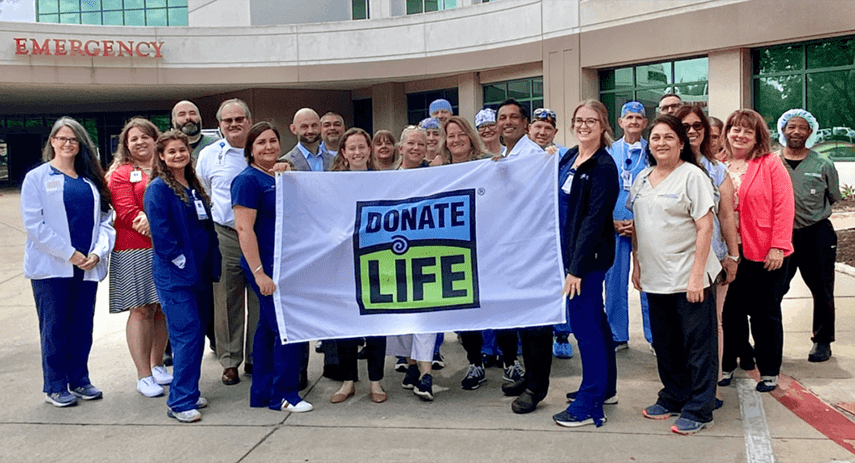One organ donor has the potential to save as many as eight lives and heal up to 75 more. That’s the message behind National Donor Day, held every Feb. 14. The day is dedicated to spreading awareness and education about organ, tissue, and eye donation.
Started in 1998 by the Saturn Corporation and the United Auto Workers — and supported by the U.S. Department of Health and Human Services — National Donor Day encourages people to register to be a donor before they are faced with a life-ending situation when it’s too late to contribute.
Some organs, like a kidney or part of a liver, can be donated while a person is still living. These types of contributions are common between family members and friends. But offerings that happen seconds after death — including major organs, platelets, blood, and various tissues — require a person to register as a donor, allowing those things to be donated at the time of the registrant’s death.
More than 4,000 Department of Motor Vehicle offices in America offer quick and easy registration. Every day, more than 100,000 people are on a national waiting list for an organ. Of those, around 20 people die each day while waiting for a transplant.
Becoming a donor is an important decision that could mean life or death for others. In 2021, more than 20,000 donors gave recipients and their families a second chance.
“It’s hard to overstate the impact donors can make in the lives of people whose organs are giving out,” wrote Robert H. Shmerling, Harvard Health senior faculty editor. “Imagine you have kidney failure requiring dialysis 12 or more hours each week just to stay alive. Even with this, you know you’re still likely to die a premature death.”
“Or, if your liver is failing, you may experience severe nausea, itching, and confusion; death may only be a matter of weeks or months away,” Shmerling continued. “For those with cancer in need of a bone marrow transplant, or someone who’s lost their vision due to corneal disease, finding a donor may be their only good option.”
Deciding to be a donor is a personal one. This National Donor day, learn the facts about donation and the benefits of being a donor and share those with friends and family members who might also wish to register as an eye, organ, or tissue donor. For more information about the transplant process, visit the Donor Alliance website.





